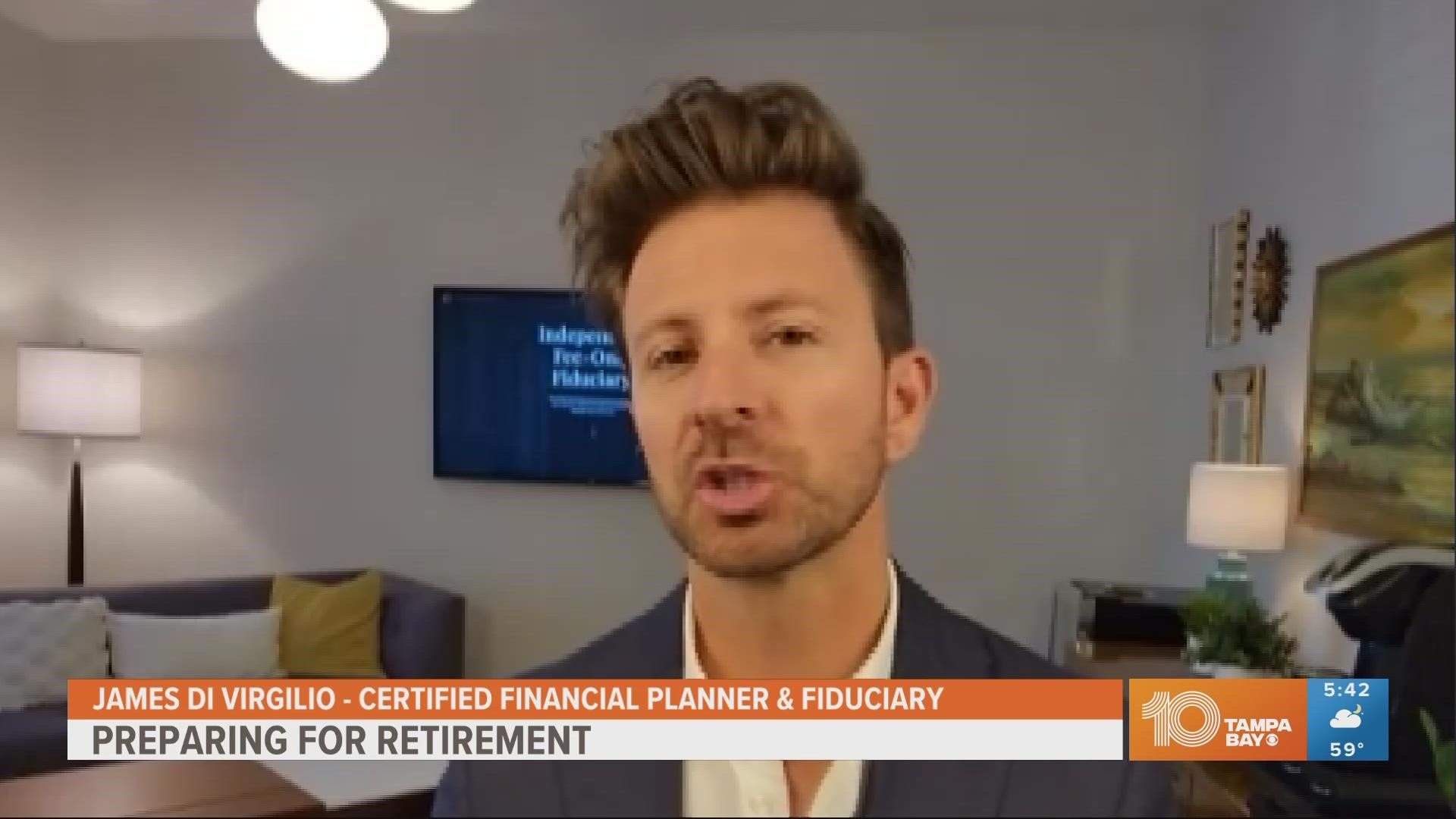TAMPA, Fla. — Riding that roller coaster to retirement definitely has its ups and downs financially. We know you have a lot of questions, so we talked to an expert for some advice.
James Di Virgilio is a Certified Investment Management Analyst and Certified Financial Planner with Chacon, Diaz & Di Virgilio Wealth Management.
Retirement age
First, let's talk about retirement age. Officially, you can start receiving your social security benefits at age 62, but if you don't want to work that long, start saving now.
Di Virgilio says the general rule of thumb, if you're young, is to save and invest 10% of your gross income. If you haven't been saving and you're in your 40s, kick that up to 15% and if you're in your 50s and haven't saved as you should, then 20% should be the goal.
He says the key is to have a plan and stick to it. "In general, the best thing you can do is manage your spending and invest the money that you save. That is the best thing you can do. And then, when you reach retirement age, you can be flexible as to the date that you do retire depending on economic circumstances and things that are going on."
Retiring soon?
Next, let's focus on what you should do if you're planning to retire soon, or in the next few years.
In a perfect world, you've been saving at least 10% of your gross income for years and investing that money. So, you can retire when you're ready. But Di Virgilio says in a year like this, where the economy is extremely uncertain, you may want to keep working a little longer.
"Emotionally, people are much more comfortable when they're bringing in an income during difficult times. It doesn't really matter how much money you have saved. It doesn't matter how much you're spending. There's a level of comfort we have making money to provide for our needs."
He says he actually sees that with retirees in general, no matter what the economy is like. It can be difficult for many people to just sit back and start drawing money from their savings, without putting money back into it.
Keeping emotions out of finance
Our emotions trigger so many of our decisions, but Di Virgilio says they should not steer your finances. He says don't panic and withdraw your money every time the stock market takes a dip.
"It's really important not to give up on the idea of long-term investing. We've been in periods similar to this one before and oftentimes people say, 'Hey, I'm done with this. This is too emotionally difficult. I'm not going to invest anymore. I'm going to keep my money in cash or in a CD.' And that is just not going to get you to retirement and to the end of your life."
Ways to make a long-term financial plan
Di Virgilio says history tells us that economic downturns are temporary, so he goes back to having that long-term plan and sticking to it.
So, let's talk more about what history tells us when it comes to the economy. Di Virgilio says after a downturn, there is a rebound and you want to be there for it.
"The reality is we will get through this and when we do get through it on average the rebound for the following year or two is very significant. So in the story I gave earlier... where you're afraid and no longer want to invest... then you miss that rebound, that return to the newer high. It's going to be very, very difficult for you emotionally because you took it down. You got off, you never got back on."
You can avoid that roller coaster of emotions by getting a Certified Financial Planner early on to help guide your saving and investing and help you feel comfortable with your decision.
No matter where you are in your journey, Di Virgilio says it's never too late to start saving and investing. So find a financial expert you trust sooner rather than later.

